Melis Malko, visionary civil engineer and founder of B-Hydrogen
In an era when clean energy is a pressing global necessity, Melis Malko stands as a trailblazer in the renewable energy sector. A highly skilled civil engineer with a deep-rooted passion for sustainability, Melis has devoted her career to advancing green hydrogen—a cleaner energy source that promises to revolutionise how we approach decarbonisation. With extensive experience in renewable energy systems, Melis founded B-Hydrogen (B-H2), a groundbreaking initiative aimed at using innovative green hydrogen production methods to propel the energy transition towards a carbon-neutral future.
The significance of green hydrogen is growing, especially as industries and governments worldwide seek sustainable solutions to reduce carbon emissions. Unlike traditional energy sources, green hydrogen leverages renewable resources such as wind and solar energy to produce clean fuel. Through B-Hydrogen, Melis and her team are pioneering the use of floating solar panels on water reservoirs, merging solar and hydroelectric power to maximise energy output and reduce environmental impact. Melis shares her journey, challenges, achievements, and vision for a sustainable world where green hydrogen plays a central role.
What inspired you to focus on green hydrogen and start B-Hydrogen?
What inspired me to focus on green hydrogen and start B-Hydrogen was the continuation of a journey that began with my thesis specialisation in onshore and offshore turbines and renewable energy sources (RES). I’ve always been passionate about clean energy, and while working with wind power, I realised that green hydrogen was the next logical step to address broader decarbonisation needs. It was clear to me that this technology had the potential to complement other renewable sources like wind, solar, and hydro to create cleaner energy solutions that would make a real, lasting impact.
Starting B-Hydrogen wasn’t just about energy, though. It was about building something capable of shaping the future, not only in Greece but globally. I wanted to contribute to the green energy transition in an innovative, scalable, and inclusive way. Part of that vision is ensuring that women have a place at the table in this industry. I believe empowering women in STEM and renewable energy is key to sustainable solutions. B-Hydrogen is my way of ensuring we create a future where green technology and diverse leadership play central roles in addressing the climate crisis.
B-Hydrogen has been recognised for its innovative approach. What has been your biggest achievement so far?
Our biggest achievement so far has been building a strong, dedicated team of volunteer researchers – engineers from various disciplines who share a collective vision for a green, eco-friendly future. Even though we haven’t yet secured some of the funding we were aiming for, largely due to the legislative and environmental challenges we face, the creation of this team has been the real highlight of our journey. The researchers we’ve brought together are not only experts in their fields, but they are also deeply committed to innovation and sustainability, working tirelessly to overcome obstacles and push forward our mission.
Your team focuses heavily on green energy and sustainability. What challenges have you faced in this growing industry?
Focusing on green energy and sustainability comes with its challenges, especially in an industry that’s still evolving. One of our biggest hurdles is navigating the regulatory and legislative environment. The policies around renewable energy and hydrogen production are still catching up with the technology, and this can slow down project approvals and funding opportunities. Ensuring that the proper infrastructure is in place to support large-scale green hydrogen production is another significant challenge, as many existing energy grids are not yet optimised for integrating renewables on a mass scale.
Additionally, there are environmental concerns that need to be carefully managed. While green hydrogen is a clean energy source, its production must align with environmental regulations, and balancing this with innovation can be complex. We also face the ongoing challenge of public awareness—a lot of education is still required about the benefits of hydrogen and other renewable energy sources. Convincing businesses and governments to invest in long-term, sustainable solutions rather than short-term fixes takes time and effort. Finally, financing green energy projects can be difficult in an industry where the return on investment isn’t immediate. Investors sometimes hesitate to fund projects that require significant upfront costs, even though they offer tremendous environmental benefits in the long run. Despite these challenges, we remain committed to pushing forward, knowing that overcoming them is key to a sustainable future.



B-Hydrogen promotes women in STEM fields. How do you view the role of women in the future of green energy?
Women bring unique skills and approaches to problem-solving, which is exactly what is needed as we tackle complex sustainability challenges. In the future of green energy, I see women leading at every level—whether it’s through research and development of new technologies, managing large-scale renewable projects, or shaping policy decisions that drive the industry forward. Their contributions are essential for creating a more inclusive, resilient, and forward-thinking energy sector. At B-Hydrogen, we aim to not only promote gender diversity but also actively mentor and support women in rising in STEM and renewable energy roles. We want to create an environment where women feel empowered to contribute their talents and ideas without barriers. The more we support and uplift women in this field, the more robust and sustainable the future of green energy will be.
You’ve been awarded the ‘Best Mentor Award.’ What does this recognition mean to you, and how do you aim to empower other women?
Receiving the ‘Best Mentor Award’ is a significant recognition for me. It reflects the importance of giving back and supporting others in their journeys, just as I’ve been supported throughout my career. Mentorship is about sharing knowledge and experience, providing encouragement, opening doors, and helping others see their potential, especially in fields where women have traditionally been underrepresented, like STEM and renewable energy. At the same time, this award also acknowledges all my efforts and training in innovation, entrepreneurship, and the circular economy. It validates my dedication to developing sustainable, innovative solutions and fostering a culture of forward-thinking in the green energy sector. Mentorship, in this context, extends beyond individuals to inspire a collective commitment to creative problem-solving and sustainable entrepreneurship.
It validates my dedication to developing innovative approaches that align with the principles of sustainability and the circular economy. In this sense, mentorship means inspiring others to think creatively, embrace entrepreneurship, and use these principles to address environmental challenges in a practical and impactful way. This recognition motivates me to continue pushing boundaries and helping others see the potential of green innovation to create lasting change. My goal is to share my lessons and create an environment where others can explore new ideas, take calculated risks, and contribute to the transition toward a sustainable future. By doing so, I aim to build a strong community of innovators ready to solve some of the world’s most pressing environmental challenges.
Your project involves floating photovoltaic panels combined with hydroelectric energy. Could you explain how this innovative process works?
Our project combines floating photovoltaic (PV) panels with hydroelectric energy innovatively to maximise renewable energy output. Here’s how it works:
We place solar panels on floating platforms over water bodies, typically reservoirs or lakes that are already used for hydroelectric power generation. The solar panels capture sunlight and generate electricity during the day, just like traditional solar farms. Meanwhile, the hydroelectric plant continues to generate energy by releasing water through turbines when there is demand, particularly during times when the sun isn’t shining or energy demand spikes. The combination of these two technologies offers several advantages.
Maximising Renewable Energy Output: Solar power is generated during the day, while hydroelectric power can be stored and used at night or during cloudy periods when solar generation is low. This makes energy production more stable and reliable.
Efficient Use of Space: Floating solar panels use unused water surfaces, saving valuable land space that could be used for other purposes.
Reducing Water Evaporation: The floating panels help reduce water evaporation from the reservoir, which is especially valuable in water scarcity areas.
Cooling Effect: The water cools the solar panels, which can improve their efficiency, as solar panels tend to perform better at lower temperatures.
Combining these two renewable energy sources can create a more flexible and resilient energy system that reduces dependence on fossil fuels while making the most of natural resources. This hybrid system exemplifies how innovative solutions can increase renewable energy capacity without compromising environmental sustainability.
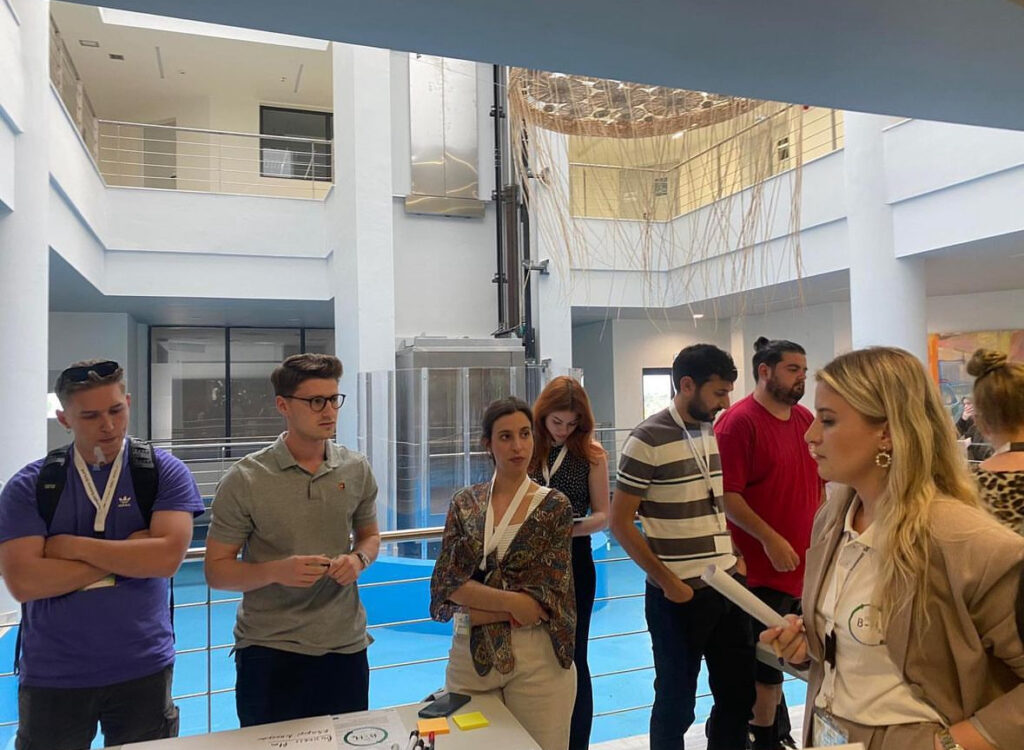
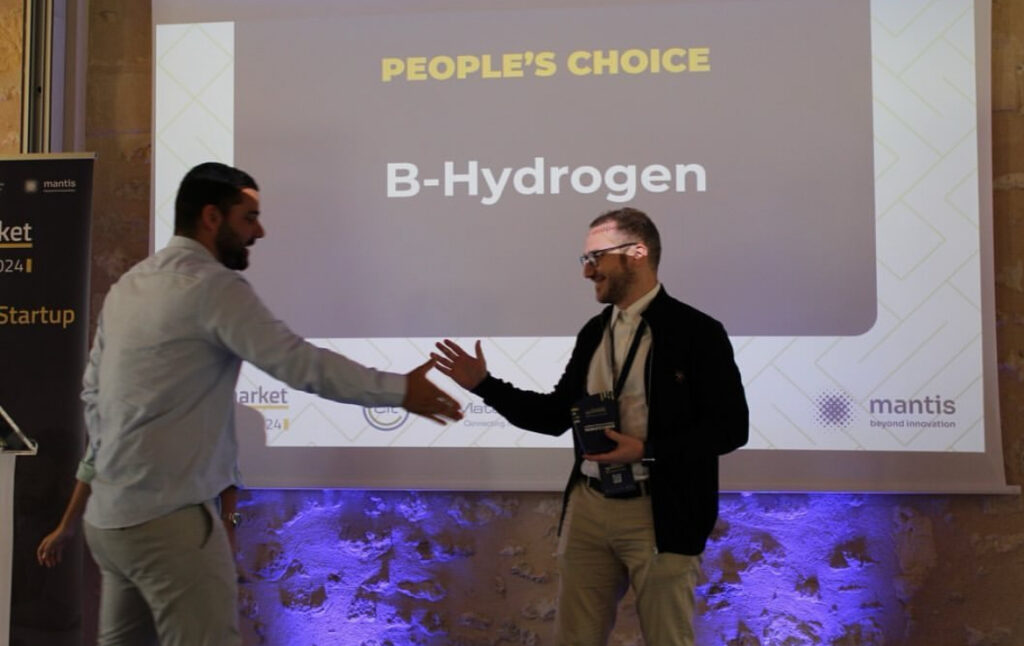
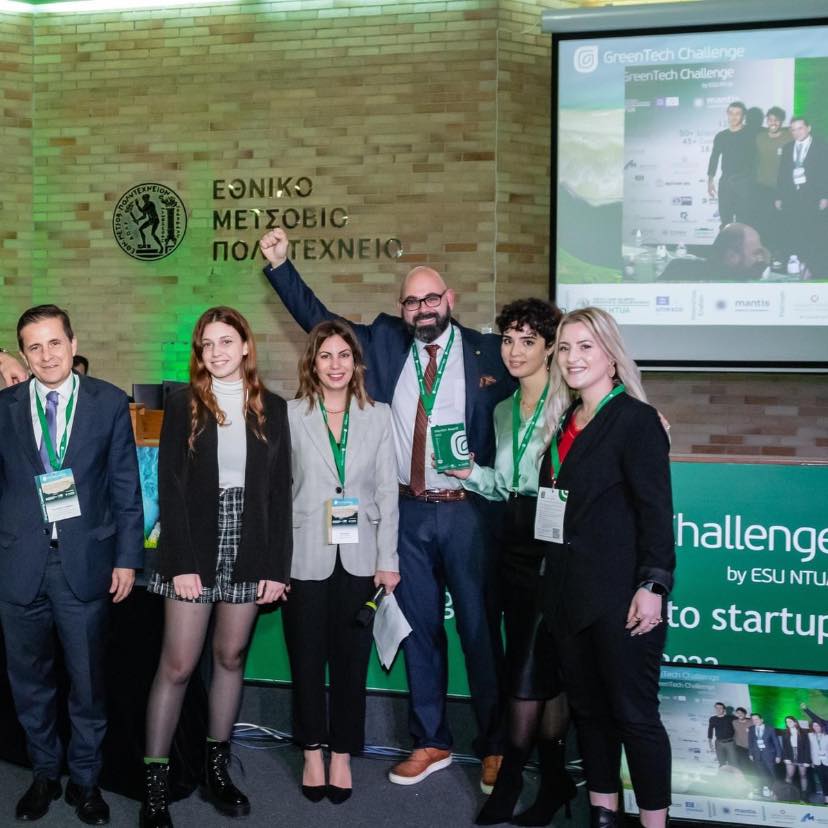
How do you see B-Hydrogen contributing to Greece’s transition to a sustainable energy future?
I see B-Hydrogen playing a pivotal role in Greece’s transition to a sustainable energy future by advancing the production and use of green hydrogen, which has the potential to decarbonise sectors that are difficult to electrify. With its abundant solar and wind resources, Greece is perfectly positioned to harness these to produce green hydrogen through electrolysis, using renewable energy to split water into hydrogen and oxygen.
While we face strong competition from large companies that have been active in this industry for years, our unique approach sets us apart. We’re combining green hydrogen production with other renewable technologies in a way that hasn’t been done before. This gives us a distinct advantage, as we’re the first to implement this combination, at least in a pilot phase, which sets the stage for scaling up once proven successful. We’ve already held workshops in many universities to raise awareness about green hydrogen and share our innovative approach with students, researchers, and academics. These workshops have been instrumental in fostering collaboration and building a community of future leaders who understand the importance of renewable energy and sustainability.
However, as I’ve mentioned, we face challenges- particularly with legislation and obtaining approval for our environmental study. These hurdles have slowed our progress but have not diminished our determination to push forward and pioneer this innovative approach. Once we overcome these barriers, we believe B-Hydrogen will play a crucial role in decarbonising Greece’s energy system, increasing energy security, and positioning the country as a leader in the Mediterranean for green hydrogen technology.
What is your long-term vision for B-Hydrogen, both in Greece and beyond?
At B-Hydrogen, my long-term vision goes beyond technology—it’s about empowering the next generation and making green hydrogen a solution for today, not just tomorrow. Through the workshops we conduct, we aim to inspire young people and educate them about the immense potential of hydrogen as a clean energy source that can drive sustainability. They must understand that hydrogen can play a pivotal role right now as long as competing interests don’t hinder it.
In Greece, we aim to establish the country as a hub for green hydrogen production, leveraging our abundant resources, wind, and fresh transition sectors like transportation, industry, and energy storage to sustainable alternatives. By fostering innovation, creating jobs, and collaborating with government and academic institutions, we aim to position Greece as a leader in the Mediterranean for hydrogen technology. Beyond Greece, I envision B-Hydrogen expanding to international markets, sharing our expertise, and contributing to the global hydrogen economy. We want to drive international collaborations and advocate for green hydrogen as a cornerstone of the world’s energy transition.
As I often say, inspired by Melis Malko: “We have the sea, we have the sun, but we don’t have a Planet B.” This belief is at the heart of our work. By engaging young people and the global community, we hope to spark a passion for renewable energy and ensure that everyone plays a role in shaping a sustainable, low-carbon future for future generations.
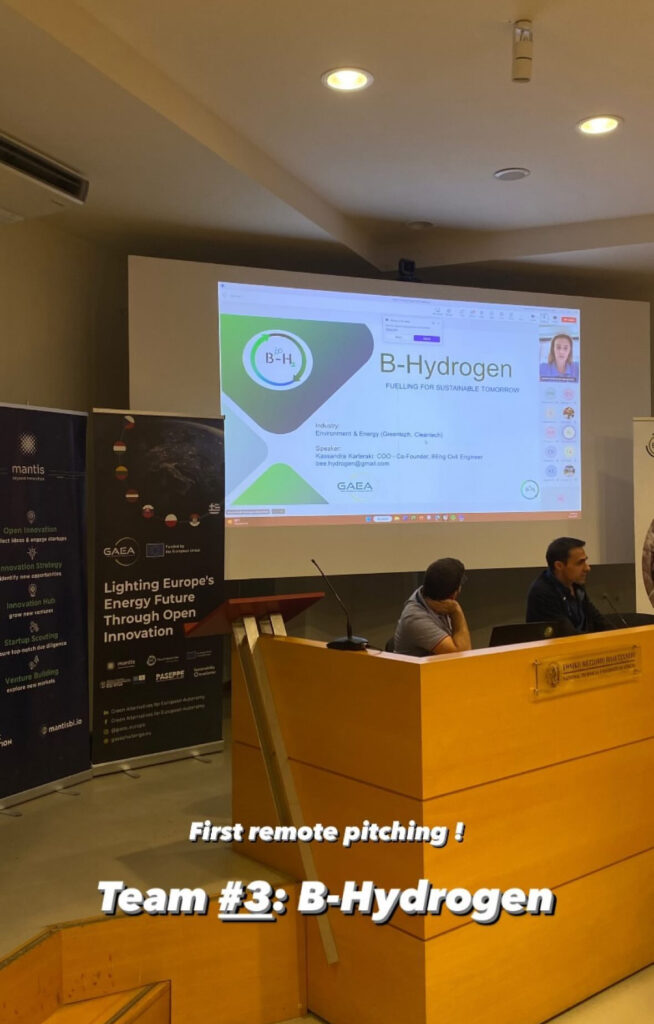
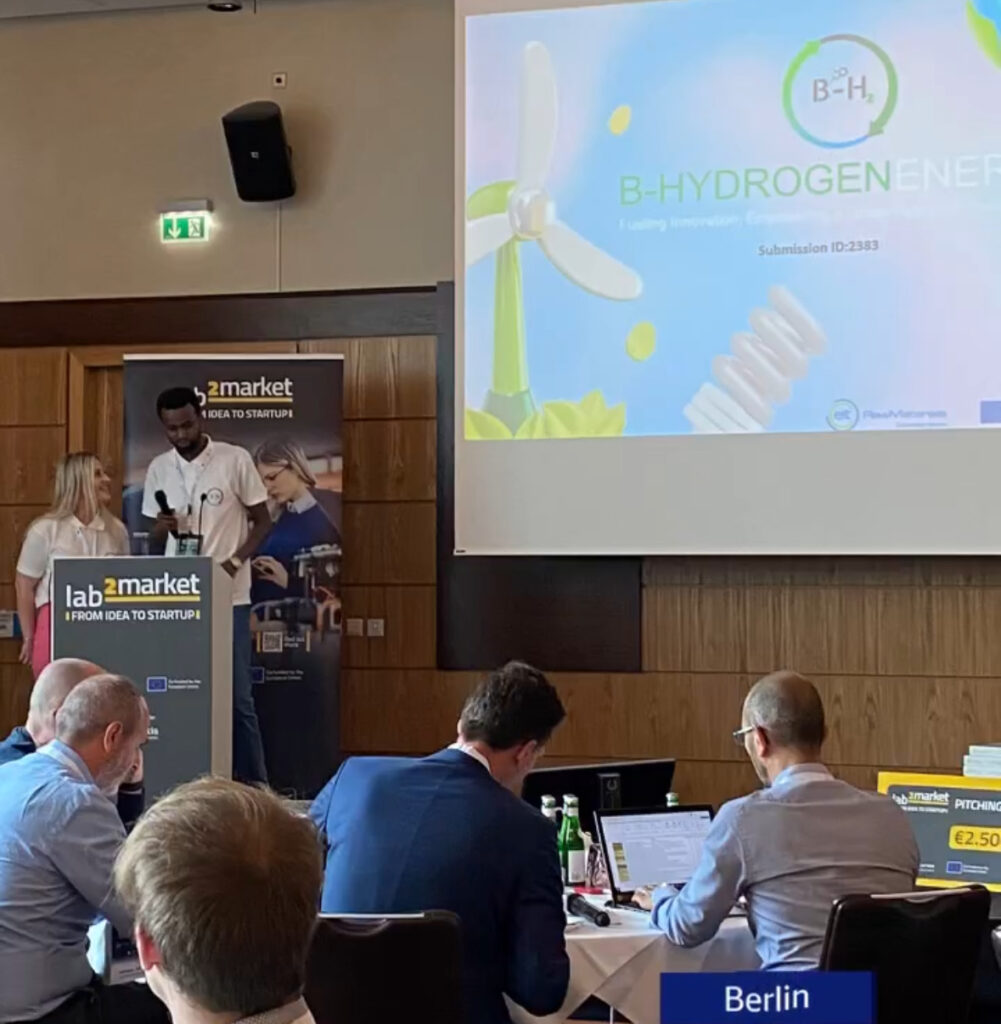
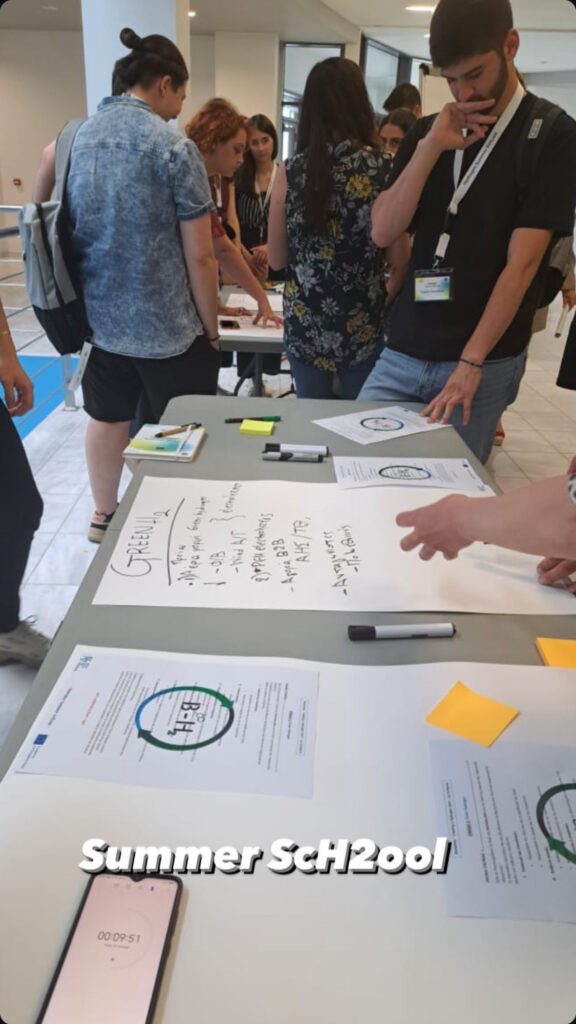
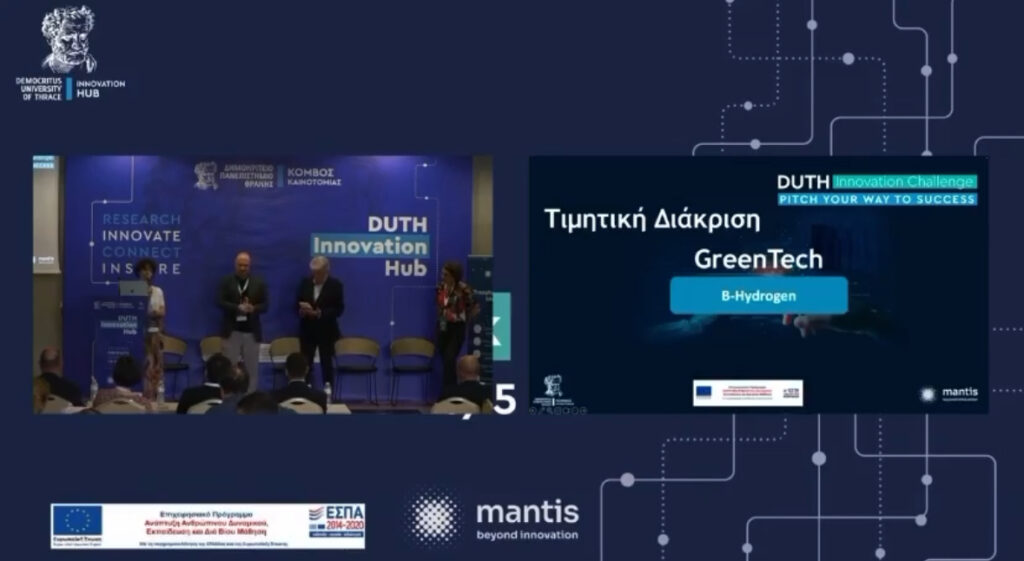
What advice would you give to young women aspiring to enter the renewable energy and green technology fields?
My advice to young women aspiring to enter renewable energy and green technology fields is to embrace your passion and pursue your interests confidently. Here are some key points to consider:
Believe in Yourself: Recognising your potential and capabilities is essential. The renewable energy sector is diverse and dynamic, and your unique perspective and skills can contribute significantly to its growth. Don’t let self-doubt hold you back; instead, view challenges as opportunities to learn and grow.
Seek Mentorship and Build a Network: Surround yourself with mentors and peers who can support and guide you. Seek out role models, attend industry events, and engage with professional organisations focused on women in STEM and renewable energy. Building a solid network can open doors and provide invaluable insights.
Get Hands-On Experience: Practical experience is crucial. Look for internships, volunteer opportunities, or projects related to renewable energy and green technology. These experiences will help you gain valuable skills, make connections in the industry, and clarify your career path.
Stay Informed and Educated: Renewable energy and green technology are constantly evolving. Stay updated on the latest trends, technologies, and policies. Consider pursuing formal education in relevant fields, but also seek out online courses, workshops, and certifications that can enhance your knowledge.
Advocate for Diversity and Inclusion: Advocate for gender diversity in the workplace. Support initiatives promoting women in leadership roles and creating inclusive environments. Your voice matters, and your efforts can help pave the way for future generations of women in the industry.
Don’t Fear Failure: Failure is a part of the learning process. Embrace setbacks as opportunities to learn and improve. Resilience is critical in any field, especially as challenging and rapidly changing as renewable energy.
Follow Your Passion: Find what excites you about the renewable energy landscape—whether it’s research, engineering, policy, or community engagement- and pursue it wholeheartedly. Your passion will fuel your commitment and drive in this impactful field.
Remember, the renewable energy sector needs diverse voices and innovative ideas to address the pressing challenges of our time. By pursuing your ambitions and supporting one another, you can contribute to creating a more sustainable and equitable future. Your involvement is essential to making a difference, and the industry will benefit greatly from your unique contributions.



